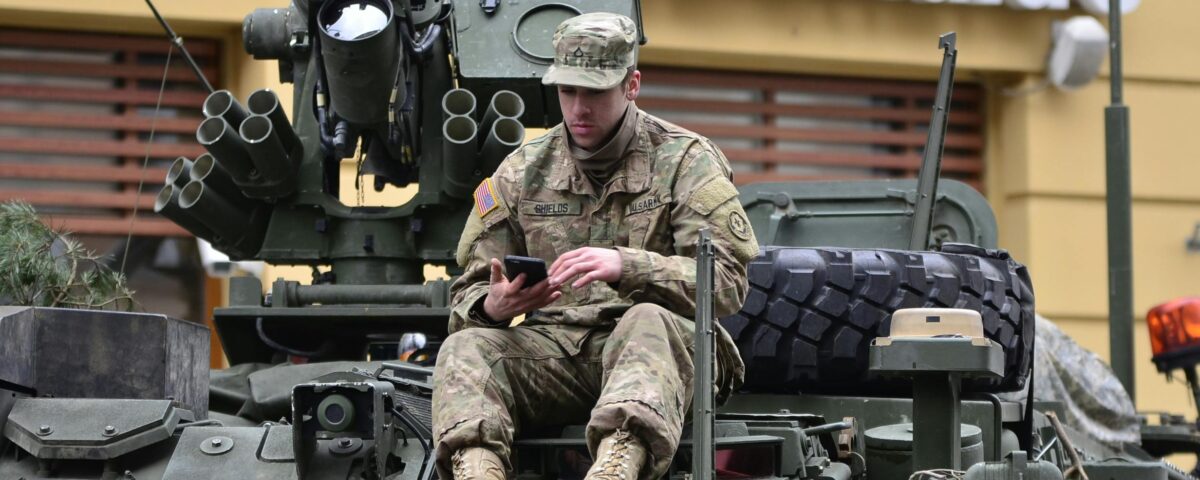
Photo by Konrad Ciężki: https://www.pexels.com/photo/man-in-brown-camouflage-sitting-on-top-of-tank-89112/
Cell Phones In the Military - The New Cigarettes In the Foxhole
Adam and Eve lived in paradise until the serpent enticed them to eat the forbidden fruit from the Tree of Knowledge. Bad move. As the Old Testament illustrates, temptation is an inescapable characteristic of humanity.
One of the forbidden fruits of World War II was the cigarettes smoked by US soldiers in their foxholes. The burning ember at the end of the cigarette was enough for enemy snipers to target those who succumbed to nicotine temptations.
Cell phones are the modern-day equivalent of foxhole cigarettes. These irresistible, ubiquitous devices in every soldier’s flak jacket pocket provide an escape from war’s horrors and offer accessible communication with friends, loved ones, and fellow soldiers. For all the joys of a cell phone in wartime, enemies can easily track these connected devices, essentially painting a target on each user’s back.
Even if soldiers resist the temptation to use their phones for personal use and entertainment, phone usage is necessary for official information exchange and discussions.
This February 2, 2024, Washington Post article outlines some of the lessons the United States military has learned from the two-year war in Ukraine. One primary takeaway is the dangers cell phones pose to soldiers and their units.
What’s a Gen-X or Millennial cell phone-loving soldier to do?
The KoolSpan TrustCall Dome Solution
KoolSpan’s TrustCall Dome secure communications platform makes it easy for soldiers to communicate freely while also staying safe.
By placing the phone into a modified airplane mode, TrustCall users may easily connect to a secure ‘Dome’ environment entirely invisible to the public web. The TrustCall infrastructure is self-contained, including its notification services. Users connected to the Dome may exchange end-to-end encrypted chat messages, group messages, and attachments, hold voice or video calls, or conduct conference calls without any exposure to the public Web.